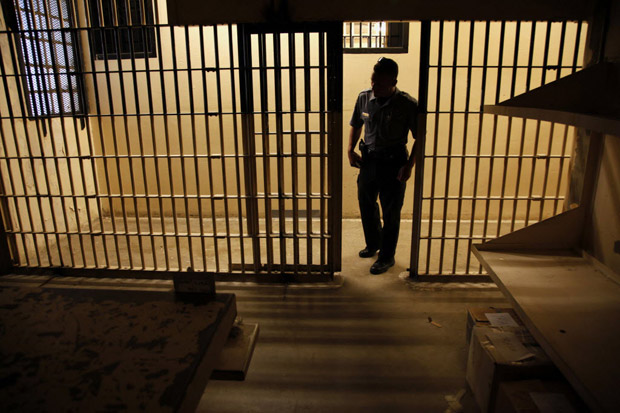Three deaths in Saskatoon police cells within 10 months has raised concerns from a British Columbia group.
The B.C. Civil Liberties Association has filed a complaint to the Saskatchewan Public Complaints Commission into the deaths of three men in custody between Sept. 9, 2009, and July 17, 2010.
"It’s very unusual to have three people die in 10 months in police cells," said David Eby, executive director of the B.C. Civil Liberties Association. He says no one has died in police custody in Vancouver for nearly three years.
"For some reason people keep dying in Saskatoon cells," he said, noting the organization stepped in because Saskatchewan has no civil liberties association.
The B.C. organization has asked the commission to launch an independent inquiry into the deaths.
"One of the issues we’ve seen again and again is that the police have a real difficulty investigating themselves," said Eby, who says police routinely miss key pieces of evidence during internal investigations.
Saskatoon Police Service Chief Clive Weighill said the deaths will be investigated by the RCMP and a public coroner’s inquest will be held in each instance. Saskatoon police have also launched an internal review while waiting for the coroner’s conclusion.
"We’re taking this very, very seriously," said Weighill.
Brandon Daniels, 19, was arrested for public intoxication in downtown Saskatoon on July 2, 2010. He was pronounced dead in his cell 12 hours later. Daniels’ mother told reporters he was on medications that caused him to appear drunk, glassy-eyed and confused. An autopsy could not determine the cause of death and investigators still await results of a toxicology report.
Two weeks later, an unidentified 46-year-old male was also arrested by police for public intoxication. The man was believed to be suffering from a head injury. He was placed in a cell, went into medical distress and died in hospital shortly after.
A third man, Christopher Hiebert, died in custody Sept. 9, 2009. He was arrested on outstanding fraud and theft charges. While news reports indicated Hiebert’s mother informed officers he had taken a dangerous amount of sleeping pills, he died two hours after his arrest.
Since the deaths, police have installed an improved electronic surveillance systems within cells, implemented a policy to call MD Ambulance should a prisoner vomit or become unconscious and has asked members to try other alternatives such as the brief detox centre or taking the person to a safe address.
One of the recommendations to the police service following a 2007 inquest into the death of a man who died of a morphine overdose in police cells was to work with the health region to create a secure lock-up and detox. Though a brief detox centre operates in Saskatoon, the centre has 12 beds and regularly turns away between four and five people a day. People who resist going to the detox are not admitted, leaving police with the only option of locking them up.
"Unfortunately, we’re the last stop," said Weighill. "We provide the best care that we can for our prisoners. If people have a medical condition that we’re not aware of, or if they’ve consumed a mixture of alcohol and drugs, it’s almost impossible for us to detect that at the time of arrest."
The recommendation to create a secure detox centre is also supported by the B.C. Civil Liberties Association.
"Police are not cut out for this work," said Eby.
The association has identified a number of factors that may contribute to death in cells, including inadequate medical services, inappropriate use of restraints or use of inappropriate restraints, inappropriate or inadequate medical training for police or jail staff, insufficient or inadequate cell checks or inadequate cell conditions or construction.








Comments